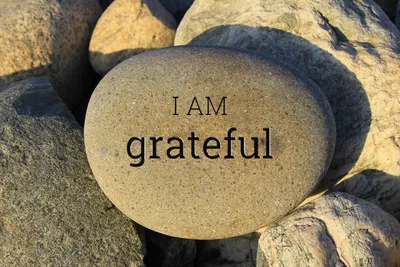Currently Empty: $0.00

Introduction
Gratitude is a powerful emotion that has the ability to transform our lives and bring about a profound sense of happiness. Being grateful allows us to appreciate the positive aspects of our lives, even in the face of challenges. In this blog, we will explore the importance of being grateful and how it can enhance our well-being and overall happiness.
Table of Contents
Table of Contents
- The Definition and Meaning of Gratitude
- The Science Behind Gratitude and Happiness
- Cultivating Gratitude in Daily Life
- Practicing Mindfulness
- Keeping a Gratitude Journal
- Expressing Gratitude to Others
- The Benefits of Being Grateful
- Improved Mental Health
- Enhanced Relationships
- Increased Resilience
- FAQs about Being Grateful
- Conclusion
- References
The Definition and Meaning of Gratitude
Gratitude can be defined as the act of acknowledging and appreciating the positive aspects of our lives. It involves recognizing the good things we have and expressing thankfulness for them. Being grateful is not just about being polite or saying “thank you,” but rather, it is a deep sense of appreciation for the blessings in our lives, both big and small.
The Science Behind Gratitude and Happiness
Numerous scientific studies have been conducted to explore the relationship between gratitude and happiness. Research has consistently shown that being grateful can have a significant impact on our well-being. When we experience gratitude, our brains release dopamine and serotonin, which are neurotransmitters associated with pleasure and happiness. These chemicals help elevate our mood and create a positive feedback loop in our brains, reinforcing the practice of gratitude.
Cultivating Gratitude in Daily Life
Incorporating gratitude into our daily lives is essential for reaping its benefits. Here are some practical ways to cultivate gratitude:
Practicing Mindfulness
Mindfulness involves being fully present in the moment and paying attention to our thoughts and feelings without judgment. By practicing mindfulness, we can become more aware of the positive aspects of our lives and develop a greater sense of gratitude. Taking a few minutes each day to reflect on what we are grateful for can significantly shift our perspective and enhance our overall happiness.
Keeping a Gratitude Journal
Keeping a gratitude journal is a powerful practice that involves writing down things we are grateful for regularly. This simple act of documenting our blessings helps us focus on the positive aspects of our lives and reminds us to be thankful. Whether it’s the support of loved ones, good health, or a beautiful sunset, writing it down amplifies our sense of gratitude and brings us joy.
Expressing Gratitude to Others
Expressing gratitude to others not only enhances their happiness but also strengthens our own sense of gratitude. Taking the time to thank someone, write a heartfelt note, or offer a helping hand can have a profound impact on our relationships and overall well-being. By acknowledging the kindness and support we receive, we create a positive and grateful atmosphere in our interactions with others.
The Benefits of Being Grateful
The practice of being grateful offers a multitude of benefits that contribute to our overall happiness and well-being. Let’s explore some of these benefits:
Improved Mental Health
Research has shown that gratitude can have a positive impact on mental health. Regularly practicing gratitude has been linked to reduced symptoms of depression and anxiety. When we focus on the positive aspects of our lives, it becomes easier to manage stress and overcome adversity. Gratitude helps shift our attention away from negative thoughts and fosters a more optimistic outlook.
Enhanced Relationships
Expressing gratitude in our relationships can strengthen the bond between individuals. When we show appreciation for others, it creates a sense of validation and fosters a positive connection. Gratitude helps cultivate empathy, forgiveness, and compassion, which are essential for building healthy and fulfilling relationships. By being grateful for the people in our lives, we nurture a supportive and loving environment.
Increased Resilience
Gratitude plays a significant role in developing resilience. When faced with challenges and setbacks, being grateful helps us find silver linings and lessons in difficult situations. It allows us to reframe our experiences and find meaning even in the face of adversity. By focusing on the positive aspects, we can bounce back more easily and navigate through life’s ups and downs with greater strength and resilience.
FAQs about Being Grateful
Q: Can gratitude improve my overall happiness?
A: Yes, practicing gratitude has been scientifically proven to enhance happiness and well-being. It helps shift our focus towards the positive aspects of life, leading to increased happiness and contentment.
Q: How can I incorporate gratitude into my daily routine?
A: There are several simple ways to incorporate gratitude into your daily routine. Some practices include keeping a gratitude journal, expressing thanks to others, and practicing mindfulness.
Q: Can gratitude improve relationships?
A: Absolutely! Expressing gratitude in relationships can strengthen the bond between individuals. It fosters appreciation, empathy, and compassion, creating a positive and supportive environment.
Q: Is gratitude only about being thankful for big things?
A: Gratitude is not limited to big things; it encompasses appreciation for both big and small blessings. It can be as simple as being grateful for a delicious meal, a sunny day, or the laughter of loved ones.
Conclusion
Being grateful is a transformative practice that can bring immense happiness and fulfillment into our lives. By cultivating gratitude through mindfulness, journaling, and expressing thanks to others, we unlock a world of positivity and appreciation. The benefits of being grateful extend to improved mental health, enhanced relationships, and increased resilience. Embrace the power of gratitude and experience the profound joy it brings.
References:

